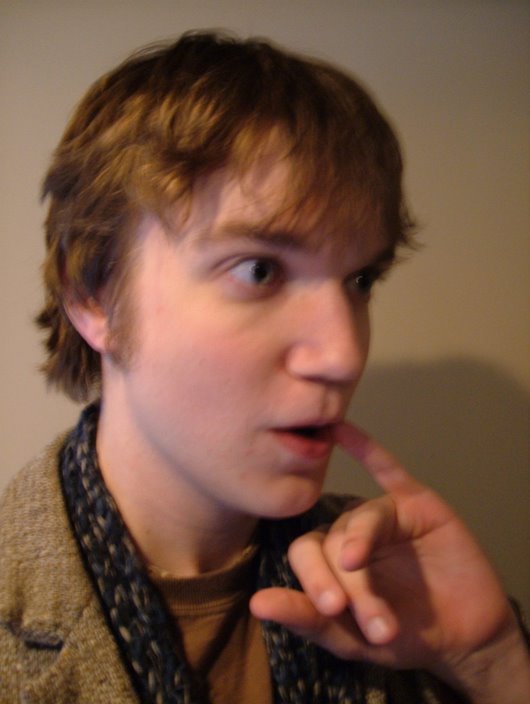
To properly discuss the validity of horoscopes one must first understand what it is to be valid. The Oxford English Dictionary defines valid as "sound in logic" and therefore the validity of something can be gauged by whether or not it or, in the case of horoscopes, the method through which its results are reached is logically sound. Thus, we will not be discussing the accuracy or precision of a horoscope prediction except where it applies to the validity of the aforementioned horoscopes, but whether the methods used to create such a prediction are logically sound. I would hypothesize that they are not.
The driving force behind the predictions of horoscopes is Astrology, or the study of the alignments of heavenly bodies (or in more scientific terms: planetary and solar systems) and their effect on human (homo sapien sapien) life. Horoscopes are basically the end result of these "studies". Predictions reached by observing various important planetary and solar alignments.
Astrology is a pseudo-science and its origins are based in myth rather than rational, deductive thought. If the alignment of planets and stars is able to affect life on earth then there should be an observable and consistent pattern or force. Such a force does not exist, or is not observable by currents methods or technology. As current technology is able to observe even the most infinitesimal of forces I will argue that such a force does not exist or is too small to have an effect on a creature the size of a human being.
It could be argued that the effect is not driven by physical forces but rather psychological means. If this is the case then an observable and consistent pattern should still be observable. This can be determined by a simple test of comparing a series of horoscope predictions with the events of a person's day over a particular period of time (the longer the period of time the more accurate and precise the results of the test). If the horoscope consistently, accurately, and with precision predicts the events of the test subject’s life then it is likely that the horoscope used is in fact valid.
I myself have run this test on myself over the course of a week (while hardly an ideal length of time the constraints of my blogging schedule demanded it be so short). The first issue that I ran in to was that horoscopes are rarely precise in their predictions. So when the horoscope was accurate it was only because the prediction was so broad that multiple interpretations of its meaning were possible.
Secondly, the horoscope was not consistent in its accuracy. Over the course of the week the horoscope was never fully accurate and on at least two occasions failed to predict the events of my day completely. Such a lack of consistency in a time frame as sort as a week is incredibly damning of the validity of horoscopes.
Scientific theory is clear that nothing can ever be absolutely proven or disproved, but the evidence against the validity of horoscopes is overwhelming. In conclusion I would argue that the predictions made in horoscopes are not reached through any logical means thus they can not be considered logically sound and are therefore not valid.
The driving force behind the predictions of horoscopes is Astrology, or the study of the alignments of heavenly bodies (or in more scientific terms: planetary and solar systems) and their effect on human (homo sapien sapien) life. Horoscopes are basically the end result of these "studies". Predictions reached by observing various important planetary and solar alignments.
Astrology is a pseudo-science and its origins are based in myth rather than rational, deductive thought. If the alignment of planets and stars is able to affect life on earth then there should be an observable and consistent pattern or force. Such a force does not exist, or is not observable by currents methods or technology. As current technology is able to observe even the most infinitesimal of forces I will argue that such a force does not exist or is too small to have an effect on a creature the size of a human being.
It could be argued that the effect is not driven by physical forces but rather psychological means. If this is the case then an observable and consistent pattern should still be observable. This can be determined by a simple test of comparing a series of horoscope predictions with the events of a person's day over a particular period of time (the longer the period of time the more accurate and precise the results of the test). If the horoscope consistently, accurately, and with precision predicts the events of the test subject’s life then it is likely that the horoscope used is in fact valid.
I myself have run this test on myself over the course of a week (while hardly an ideal length of time the constraints of my blogging schedule demanded it be so short). The first issue that I ran in to was that horoscopes are rarely precise in their predictions. So when the horoscope was accurate it was only because the prediction was so broad that multiple interpretations of its meaning were possible.
Secondly, the horoscope was not consistent in its accuracy. Over the course of the week the horoscope was never fully accurate and on at least two occasions failed to predict the events of my day completely. Such a lack of consistency in a time frame as sort as a week is incredibly damning of the validity of horoscopes.
Scientific theory is clear that nothing can ever be absolutely proven or disproved, but the evidence against the validity of horoscopes is overwhelming. In conclusion I would argue that the predictions made in horoscopes are not reached through any logical means thus they can not be considered logically sound and are therefore not valid.


No comments:
Post a Comment